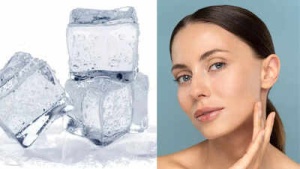Dengue fever, a viral infection transmitted by the Aedes aegypti mosquito, poses a significant health challenge in India. With the monsoon season exacerbating the spread, hope emerges as India's first dengue vaccine approaches the final testing phase. Phase 3 trial enrollment is nearly complete, marking a crucial step forward.

Dengue's danger lies in its potential to cause severe symptoms, including high fever, intense headaches, and debilitating joint and muscle pain. In critical cases, a sharp decline in blood platelet count can lead to bleeding, organ failure, and even death. Children and the elderly are particularly vulnerable.
Developing a dengue vaccine has been a long-standing challenge. The existence of four distinct dengue virus types necessitates a vaccine that offers comprehensive protection against all. Previous vaccine efforts in other countries have yielded inconsistent results, hindering widespread adoption.
The Serum Institute of India (SII) is at the forefront of developing India's first dengue vaccine, named "TetraVax-DV". This vaccine is engineered to provide protection against all four dengue virus types. Utilizing a non-live, weakened form of the virus, TetraVax-DV stimulates the body's immune system to develop defenses against dengue without causing the illness itself.
Vaccine approval hinges on successful completion of rigorous testing phases:
Phase 3 is critical as it demonstrates the vaccine's ability to prevent dengue within a community.
The phase 3 trial for India’s dengue vaccine commenced in 2023, spanning over 20 sites across urban and rural regions. The trial aims to include over 10,000 volunteers, encompassing both children and adults from diverse backgrounds. Current progress indicates near-complete enrollment, with promising preliminary outcomes.

India faces a significant burden of dengue cases globally. A safe and effective vaccine holds the potential to:
Irrespective of vaccine availability, preventive measures remain crucial. These include protection against mosquitoes through repellents and appropriate clothing, ensuring proper drainage, and eliminating potential breeding grounds for mosquitoes in standing water.
The Indian Council of Medical Research (ICMR) and Panacea Biotec
Older articles
 New Zealand Cricket Announces Packed 2025-26 Home Summer Against Cricket Giants
New Zealand Cricket Announces Packed 2025-26 Home Summer Against Cricket Giants
 Cricketer Nitish Rana Eyes Delhi Comeback After Disappointing Uttar Pradesh Stint
Cricketer Nitish Rana Eyes Delhi Comeback After Disappointing Uttar Pradesh Stint
 SA20 Auction: Teams Can Keep Up to Six Players, Purse Increased to $2.3M
SA20 Auction: Teams Can Keep Up to Six Players, Purse Increased to $2.3M
 Smith Targets Test Return After Baseball Cage Rehab
Smith Targets Test Return After Baseball Cage Rehab
 IPL: Sunrisers Hyderabad CEO Kavya Maran Addresses Viral Meme Fame, Passion for Team
IPL: Sunrisers Hyderabad CEO Kavya Maran Addresses Viral Meme Fame, Passion for Team
 Quick-Dry Guide: How to Save Yourself When Caught in a Rainstorm
Quick-Dry Guide: How to Save Yourself When Caught in a Rainstorm
 Beyond Ordinary: A Global Exploration of Must-Try, Unique Chocolate Flavors
Beyond Ordinary: A Global Exploration of Must-Try, Unique Chocolate Flavors
 Facial Icing: Hype or Help? Exploring the Benefits, Risks, and Proper Techniques for This Viral Beauty Trend
Facial Icing: Hype or Help? Exploring the Benefits, Risks, and Proper Techniques for This Viral Beauty Trend
 Former Pakistan Cricketer Akmal Blasts PCB Over Azhar Mahmood's Interim Coaching Appointment
Former Pakistan Cricketer Akmal Blasts PCB Over Azhar Mahmood's Interim Coaching Appointment
 India Poised to Unleash First Dengue Vaccine as Phase 3 Trials Wrap Up
India Poised to Unleash First Dengue Vaccine as Phase 3 Trials Wrap Up